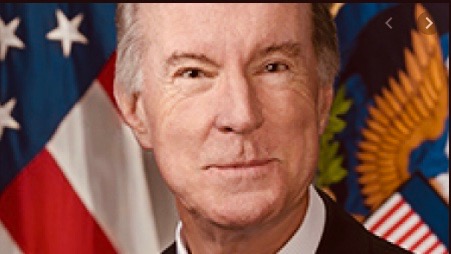GREGORY F. TREVERTON WRITES — I first thought it unfortunate that my friend, mentor, colleague and one-time boss, Joe Nye, published this book about morality and foreign policy at a time when the current president’s moral sense of anything doesn’t extend beyond the almighty dollar. Yet in fact that timing is fortuitous, for the book is a reminder that, as Joe puts it, “to pretend that ethics will play no role is as blind as to say the sun will not rise tomorrow.”
[Book in Review: Joseph S. Nye, Jr.’s Do Morals Matter: Presidents and Foreign Policy from FDR to Trump, Oxford University Press, 2020]
I should confess my bias: I am not just a friend but a fan: Joe is the most clear-minded thinker I have known. (I do wish he hadn’t inflicted the term “soft power” on us, but that’s a discussion for another day.) And that clarity is on display here. He judges the presidents on three familiar dimensions – intentions, means and consequences – and grounds those judgments in three broad world views, realism, cosmopolitanism and liberalism. We are both disciples of John Rawls, but Nye recognizes, as did Rawls, that the conditions for just society can apply only domestically. Realism is the place to start in a world of sovereign states, but “realists stop where they start.” They seldom consider either the cosmopolitan sense of the human community across nations or the liberal view that while “there is no world government, there is a degree of world governance, and anarchy has its limits.” Nye’s moral scorecard also includes education: did the leader respect the truth and try to reinforce the moral discourse at home and abroad?
Not surprisingly, Johnson ranks lowest on Nye’s seven-indicator scorecard, earning a “poor” or “mixed/poor” on every dimension. Trump, Nixon and Bush 43 are next, though Trump does get one “good” for proportionate and discriminating use of force. Top of the list is Bush 41, which is where I would rank it among postwar administrations on foreign policy performance – a nice reminder that doing good and doing well are not at cross purposes. Happily, the upper end of the list is crowded, with FDR, Truman, Ford, Carter, Reagan, Clinton and Obama all scoring “good” or “mixed” on every indicator.
Joe and I have both done stints leading government intelligence agencies, and so know that nothing is harder than telling leaders how other countries view the United States, reminding them that what we say matters less than what we do, and that what we do also matters less than what we are. Perhaps strongest among prevailing myths is that the United States is generally on the side of the angels and so perceived by the rest of the world. Now, especially, we are more likely to be viewed as part of the problem than part of the answer.
I may be showing my prejudice again, but of all the presidents, the one who most plainly articulated the yawning gap between who we are and the “city on the hill” we aspire to be was Jimmy Carter, a president both Joe and I served. He insisted, for instance, that if we were going to score other nations on their human rights record, we could not shrink from scoring ourselves as well. From today’s moral vantage-point, that seems not just another time but another world.
Gregory F. Treverton was Chair of the U.S. National Intelligence Council until January 2017. He is now Professor of the Practice at the University of Southern California and Executive Advisor to SMA Corporation.

